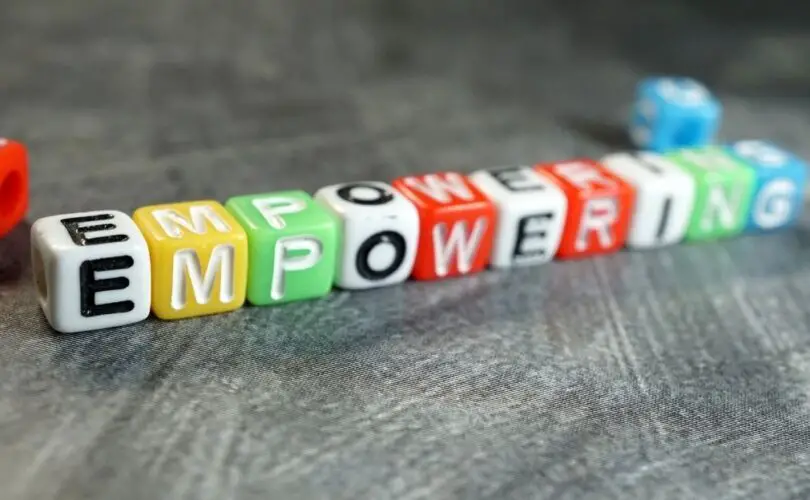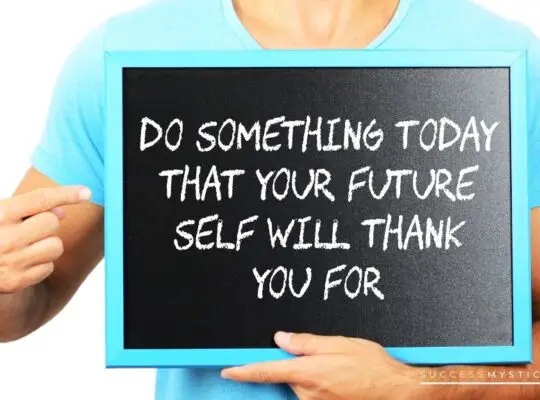There are many different aspects to personal growth and development. If you are focused on your own personal development goals, many different empowering habits can help you achieve the exceptional life you have always wanted.
We offer 101 different habits that, when cultivated into your personal growth plan, can help you achieve your goals.
101 Empowering Habits
Confidence

1. If you want to increase your potential and boost your success in life, focusing on your confidence will have the most significant impact. There is a strong correlation between self-confidence and success, so expanding how you think about yourself is an important goal. Every day, remember your strengths by repeating affirmations that highlight your gifts and talents.
2. Going along with the crowd is often an easier choice than standing alone, but taking a stand is an essential part of building confidence. The next time you disagree with something, or your gut is telling you not to be swayed, speak up. Thinking for yourself, and having confidence in your own beliefs and ideas, will help you expand as a person.
3. If you want to boost your confidence, learn from other fields. Think outside the box and consider starting a blog, taking a language course, or joining a theater group. You will learn many new skills and meet interesting people that can help you achieve whatever goals you set for yourself.
4. Trust your gut. You have an intuition that is aligned with your specific values and beliefs. Trust that intuition, especially when it is speaking loudly. It is likely right.
5. Look to others for inspiration. If you are working on your confidence (or any other personal development goal), get inspired by others who have strength in this area. Inspiring books, podcasts, and seminars can provide you with new ideas and keep you motivated to continue working toward your dreams.
6. Remember that each experience teaches you a lesson. When you are building confidence, focus on what you have learned and how you can use that to grow. This will avoid negative energy dedicated to thoughts of failure or mistakes.
7. Embrace fear. By recognizing when you are afraid, you can start to manage your reaction to fear. Once you decide fear no longer has control over you, you can live confidently in pursuing your goals.
8. Focus on your body language. When your body language says you are confident and assertive, others will treat you differently. Manage your non-verbal cues to portray inner confidence, even if you are not entirely feeling so on the inside.
9. Practice resilience. When you focus on how you overcome adversity, you grow in your confidence. Try something you’ve never done before to see how well you handle new situations or learning experiences. What did you learn from your success or failure? If it didn’t go so well, work toward bouncing back quickly and shrugging it off. Practicing resilience will definitely help you gain more confidence in all aspects of your life.
10. Focus on your decisions. Making better decisions in your life will result in better outcomes and more confidence for you. Your choices should be based on what is important to you, your values, and your goals. Making decisions based on these things, versus others’ needs or beliefs, will shape your life in ways that make you happy and healthy.
11. Believe. A consistent belief in yourself and your choices is vital to growing your self-confidence. Let go of your doubt and insecurity and focus on how you are working to achieve your goals. Optimistic thoughts are a strong predictor of success.
Career

12. Create your own dress code. Decide on clothing that makes you feel powerful and confident but still allows you to do your work effectively. Dress for success, and successes will come to you.
13. When you have a problem, use the wisdom of the group. Asking for help, inviting advice, and listening to feedback are all signs you are a team player and respect your colleagues. Listening to others will help you develop excellent communication skills and solve your problem in the best way possible.
14. Work on empathy. Getting ahead at work and succeeding in your field will be easier when you understand others’ motivations and needs. Empathy is relating to how others think and feel, and whether it is your superiors, colleagues, or customers, being empathetic is a career skill that will allow you to work better with others and be more successful.
15. Get your emotions under control. Controlling how you react to others and life’s unforeseen circumstances will help you achieve your career goals. Getting those negative, fearful, and angry emotions tethered can release you to fulfill all your dreams. Listen carefully to those emotions when they start to crop up and temper them down with positive self-talk and constructive action, instead.
16. Don’t be afraid to take risks. If you want to grow and become the most successful version of yourself, you have to take risks and leave your comfort zone. Setting goals that are slightly out of reach can help you work hard and grow more, and attempting risky actions allows you to learn to deal with the anxiety and fear that change can cause.
Goal Setting And Achievement

17. Make sure you have daily goals each day. Without a clear target each day, you may wander and use your time less productively. When you establish clear goals, you’ll know what you need to do and how you need to do it.
18. Do your hardest task first. Sometimes, the idea of a daunting task is worse than the work itself. Don’t procrastinate something difficult. Tackle it first, when you are fresh and ready, and then move on with your day.
19. Deadlines are crucial to accomplishing your goals. For every aim you set, be sure there is a clear deadline, which will help you stay on track with your action plan. A goal without a deadline is just a dream.
20. Before starting any task, identify a target you plan to hit before you will allow yourself to take a break. Work diligently until you hit that target, then rest or do something else for a bit. Breaking bigger goals down into smaller milestones helps you see your progress and stay motivated.
21. If you have something particularly difficult or tedious, use a timer to set aside a specific amount of time you will devote to making headway. Maybe work on it for 30 minutes, then set it aside for a bit. If it’s something you really don’t enjoy doing but is necessary, this can help you make progress while setting parameters that allow you to feel positive about the rest of your day.
22. If you have difficulty making decisions sometimes, try a 60-second rule. Once you have all the information you need, give yourself just one minute to make a decision. During that minute, you can hem and haw all you want, but at the end of your allotted time, you must make a choice. Be sure your next step is to create an action plan.
23. Put easy tasks at the beginning and end of a work session. This allows you to warm up with things easily accomplished, spend the bulk of your time dedicated to what’s most important, and ease out of your work mode with easy tasks, as well.
24. End each day be preparing for the next. Before you go home or stop work for the day, determine your first goals for the next day and prepare any materials you might need to start work immediately. This will help you with continuity, particularly if you are in the middle of a big project.
25. When you have a big project, be sure you break it apart into smaller goals. These should each be well-defined and include deadlines. This will keep you focused and making continuous progress and accomplishing the smaller goals will feel more manageable than completing the entire project.
26. Focus on priority. When you make your task list for the day, remember to identify the urgency of each goal. Urgency and importance are different, so don’t forget to devote time in your schedule to important tasks that may not be urgent, but you still need to accomplish, such as your own health and personal relationships.
27. Make yourself accountable to others for your commitments. Make sure others know what you are doing and trying to accomplish. Telling others will provide motivation when things get hard, as you will know others are aware of your promise to yourself.
28. When possible, delegate to others. Sometimes, we place too much responsibility on ourselves to accomplish everything on our own. But, as long as it gets done, it sometimes doesn’t matter who does it. When you can, give other responsibility that will free up your time.
29. When you have a massive and tedious project ahead of you, break it into smaller chunks and do just one a week. Instead of cleaning the whole garage, do one shelf at a time. Instead of writing the entire chapter, write three paragraphs instead. Stop once you’ve accomplished this small bit and move on. It will take time, but you will achieve your goal eventually.
31. When you have a significant goal, visualize what it will be like once it is accomplished. Place yourself in the situation. How do you feel? What has changed because you were able to achieve this aim? Make it as real as possible and refocus on this anytime your motivation is waning.
32. Choose to procrastinate. If you have tasks that aren’t time sensitive or critical, keep putting them off. Some will likely die off due to lack of necessity. This is not the best strategy for all tedious tasks, but it can be occasionally successful for those that feel like busy work.
33. If something on your task list is causing you angst, tackle it immediately. Letting something you fear weigh on your mind for long periods just makes it worse. Muster your strength and dive in.
Focus

34. Write down 20 different ways you are distracted in any given day. For each distraction you identify, write down two ways you can reduce or eliminate it from your life.
35. Routine can help you focus. Schedule times each day for accomplishing specific tasks or goals. If you are working toward a big dream, schedule time each day to work on this. If it is not on your calendar or part of your daily routine, it is not a priority in your life.
36. Gather a mastermind group. A like-minded community can provide you with feedback and direction that can keep you focused on accomplishing your dreams. Meet regularly with these people to stay motivated and get consistent feedback.
37. After committing to something, don’t give up until it is complete. Stay with it without switching tasks. If something comes up, like a new distraction or idea, write it down to come back to later. When you are trying to build focus, these uninterrupted times are critical.
38. Keep distractions down by only have a few tabs open on your computer at any one time. Turn off notifications for social media, email, and other ongoing systems that may detract from your current focus, as well.
39. When others’ make poor use of your time, reclaim it. Use long waits for appointments to make your task list for tomorrow. Set your next personal development action plan during a pointless meeting. Use your time better to accomplish more.
Changing Bad Habits

40. When you are working toward changing bad habits into more positive ones, set small goals and reward yourself for accomplishing them. Haven’t smoked in three days? Take yourself to a movie. Made it to work on time for a week? Book a massage. Rewards can keep you motivated to keep working hard.
41. If you are trying to establish a new habit, try adding it on to something you already do regularly. Write in your journal after you eat lunch each day. Send five messages of gratitude to others after you brush your teeth each night. Habitualize the new task by combining with habits you already have.
42. You may be limiting yourself. By ignoring the limitations and pushing past fear, you can create newer, healthier habits that break you free of your comfort zone.
43. Changing in the present means moving on from the past. Your personal growth will be stalled or hindered if you are constantly reliving the past. Clearing the closet of skeletons can help you banish your negative thoughts and bad habits by allowing you to focus on who you are now and who you want to be in the future.
44. States of mind are contagious, and when you have negative people in your life, it affects you. When you are trying to change your habits, get rid of the people in your life that are not positive and successful. Surrounding yourself with positivity can propel you to accomplishing your goals and banishing bad habits.
45. Willpower is a dominant force when trying to establish new habits. Use your powerful imagination to distract yourself when willpower is low but urges remain firm to return to poor practices. Distraction is a powerful technique when reshaping behavior.
46. Remember that you will fail occasionally, and that’s okay. Having a plan for how to deal with failures when they arise will be necessary for developing your resilience. Looking at failure as an opportunity to learn is also important. Mistakes mean you are human and learning to get back up and try again after a misstep is an essential component of a successful life.
47. When you are trying to rid yourself of a bad habit, get rid of triggers. Whether you are changing your diet or trying to watch less TV, eliminating the triggers that encourage you to engage in these behaviors is important. Don’t have unhealthy food in your house. Hide your remote control. Do whatever you need to eliminate the habit from your life.
Productivity

48. Practice active listening. You can become more productive by actively listening when others are talking. This will help clarify expectations, which means your work will be more productive. It also shows others you value their input and time.
49. Make a weekly plan. Each week, sit down and make a plan for every day. Set goals for the week as well as smaller, daily aims. Make sure you have the resources and supplies necessary to accomplish your goals and spend some time considering how you will reward yourself when you meet your established benchmarks.
50. Start your day early. Getting up early allows you to accomplish more before most people are even awake. Early morning hours are often the most productive. Rising early also can give you time for your personal goals, like exercising or working toward a long-term dream.
51. Blackout time each day for uninterrupted work. When you really need to focus, this is the time when you work on that project. Other tasks can wait for less structured portions of your day but protect this time at all costs.
52. Do similar tasks together. Make all your phone calls during the same block of time, run all your errands on the same day. This will allow you to accomplish many small to-dos at once and help you feel more productive.
53. Show up on time, every time. Being punctual will help you make the most of yours and others’ time, will allow you to make the most of whatever time you have, and will leave you (and others) feeling more prepared and less frustrated.
54. Turn off the TV. Most of us don’t even engage fully with programs when the TV is on, and channel-surfing is a huge time suck. Recapture many wasted hours each week but tuning in less.
55. You know when you are most productive in a day. Some of us work best early in the day, while others don’t get our momentum going until after lunch. Whatever is your most productive time, schedule essential tasks for this time. Work on less important or urgent projects in your less-productive hours.
56. Be proactive. Instead of waiting for something to happen, cultivate proactive behaviors in your life. By taking action before a problem arises, you create your own outcomes and have more control over your fate.
57. Use waiting time productively. Always carry something to read to make use of waiting in line or for appointments. Make a daily plan while you brush your teeth. Jot down your grocery list while in the elevator or sitting on the bus. Don’t let waiting time become wasted time.
58. Do not procrastinate. The habit of procrastination is one that robs you of your productivity. Use all your time wisely and break the cycle of procrastination that makes you less productive and more likely to miss important goals and opportunities.
59. Listening to music can help some people improve their productivity. Music enables you to drown out background distractions, can keep you focused, and may relax you. Not everyone can listen to music and work, but for some, it is quite useful.
60. Upgrade your skills. If you want to be more productive, it may be time to learn some new skills. Consider taking a class or reading a book that can help you get ahead or accomplish your next goal.
Mindfulness

61. Being mindful is about awareness. Mindfulness helps you acknowledge what you have already in your life. Focus your thoughts on the present and how you can enjoy now. Push away thoughts of past regret or future anxiety and live for today.
62. Practice gratitude every day. Sending thank-you’s and acknowledging others’ hard work helps you see how others contribute to your life. By practicing gratitude each day for others in your life, you also begin to consider how you add to your own success, as well.
63. Saying thank you at each meal acknowledges that hard work made it happen. Whether that work was yours, your partners,’ or someone else’s, saying thank you helps you appreciate everything that went into nourishing your body and giving you what you need to lead a healthy, productive life.
64. Put your phone away. When you are with friends and family, talking with colleagues, or at a meeting or function, put your phone away and pay attention to those surrounding you. Be mindful of how you listen to and interact with others, and how focusing changes your relationships and interactions in positive ways.
65. Establish positive relationships with others. Getting along with people is an important life skill. If you find you are often in conflict, work actively at resolving issues and learning how to have more positive relations.
66. Be empathetic. Understanding others’ perspectives can give you great insight, help you achieve your goals, and can contribute to more lasting, positive relationships with others.
67. We all have negative thoughts. It’s okay. Set aside a time each week to think about those emotions, permitting yourself to feel them temporarily. Stick to a time limit, then move on to contemplating solutions for those negative thoughts.
Stress Management

68. Stress management is an essential life skill, as stress impacts your physical, emotional, and psychological health. Develop a willingness to combat and lower stress in your own life and start by being aware of what causes you stress regularly. Being aware of your stress triggers is the first step to reducing stress overall.
69. Learn how to resolve conflict. There will always be parts of your life where you have some conflict. Learning how to fix this strife is vital for everyone. Seek out the advice of others who excel at this skill, read, and practice resolution whenever possible. Learning how to resolve problems will help you achieve more and feel less stressed in stressful situations.
70. Start your day prepared. Before you go to bed every day, make sure you are ready for the following day. Have a plan and know what you need to accomplish your goals, then go to sleep knowing you are ready for what lies ahead. This will help you rest easier and start the day off on the right foot.
71. Breathe. Practice deep breathing, especially when you are stressed. Deep, focused breathing reduces heart rate and calms anxiety, which are both signs of stress. Practice regular, concentrated breathing, so you’ll know automatically how to respond to stressful situations.
72. Get plenty of sleep. When your body does not get restful, plentiful sleep, your brain actually begins to work differently. It becomes harder to think clearly, to solve problems, and to handle stress. Making sure you are getting enough rest is essential for dealing with all the pressures of life.
73. Create a stress-free environment. Whether at home or work, you want your setting to allow you to reach your full potential. Remove things that cause you stress and create an environment that promotes tranquility and peace.
74. Treat your body well. Drink plenty of water and eat healthy foods to give your body the nutrients and fuel it needs to work each day. Without the healthy building blocks of life, you will feel tired and have difficulty keeping up with the demands of day-to-day life.
75. Say no. Let go of commitments and requests for your time that are not important or do not benefit you and your goals. When you are stretched too thin and are unable to spend time working on yourself, you feel stress and resentment rather than fulfillment.
76. Exercise regularly to provide your brain and body with the needed stimulation for metabolism, cognition, and focus.
77. Spend time outside. Walking in nature or spending time outdoors is proven to reduce stress and increase enjoyment.
Growth Mindset

78. Cultivating a growth mindset is perhaps one of the biggest keys to personal development. Deciding that you are always learning and evolving helps you approach everything in life with positive intentions and a look to the future. Think of everything, even failure and setback, as an opportunity to learn and grow, and you will be able to accomplish any goal to which you set your mind.
79. Read every day. Reading helps you learn more, and it opens you up to new perspectives and interpretations. Reading enables you to develop empathy, enhances your brain capacity, and can teach you essential knowledge and skills you need to accomplish your goals.
80. Watch a new documentary or listen to a new podcast every week. Learning new things is vital to lasting cognitive function. Learning about others and their accomplishments or mistakes can help you understand yourself better and provide you with valuable information for achieving your goals.
81. Make friends with yourself. If you cannot get along with yourself, how can you get along with others? Learn to appreciate and accept all parts of who you are, including your strengths and weaknesses. Approach your relationship with yourself with love and understanding, as well as forgiveness and empathy.
82. Practice metacognition. The act of thinking about your own thinking, or metacognition, helps you discover patterns in your thinking that may be limiting your productivity or hindering you from accomplishing your goals. Reflect on how you approach problems or think about new ideas to determine how you can improve your cognitive processes to accomplish what you want.
83. Be open to all learning experiences. When you begin a learning journey, you quickly realize you don’t know a lot about much. Being open to ongoing development and learning means you can take advantage of knowledge and expertise all the time to help you become the person you want to be. It also helps you approach new goals by identifying what you will need to learn to be successful in achieving them.
84. Share your learning with others. When you transfer your knowledge and skills to others, it helps you grow and learn in the process. Be open to opportunities for teaching and offering feedback.
85. Remain flexible. When you are overly judgmental or critical of others, you limit what you can learn from them or others’ opinions or perspectives. Instead, go out of your way to seek out new viewpoints and differing ideas.
86. Look for the humor in any situation. Staying positive and being open to the humor in life helps you expand your thinking. Humor allows you to lighten your emotional connection to a situation and cope with feelings of frustration and stress, as well.
87. Get creative. Using your imagination opens up new realms of possibility for your life. Don’t let go of that childlike part of you that wants to believe in fairy tales and limitless possibilities, and instead cultivate that creativity and inspiration.
88. Connect with something bigger than yourself. Become part of something that brings you joy or fuels your passion. Find something you can be proud to support.
89. Do something kind for someone else. Helping others allows you to showcase your own strengths as well as do something kind for someone else. When you help someone else, you experience gratitude for all you have and can even identify areas for future personal growth for yourself, as well.
90. Stay connected to your family and friends. Positive, healthy relationships are importation in life. If yours have not been positive up until now, this is an excellent opportunity to try and repair past damage and mend fences. Letting go of hurt and past mistakes can also help you continue to grow.
91. Meditate. Meditation is a powerful force for your mind. It can help you unlock hidden potential, calm fears, and learn focus. Meditation releases your mind from distractions, too.
92. Completion can be better than perfection. Especially while learning new skills, focus on getting something done rather than getting to done perfectly. Learning to accept your flaws is a part of self-development, and perfection is rarely necessary for true happiness or success.
93. Celebrate even small victories. A growth mindset means you are continually evolving, and that alone is worth celebrating. Give yourself the credit you deserve by acknowledging hard work and small successes, especially when the work is new and challenging.
94. Welcome the word “yet.” Instead of focusing on the things you cannot do or do not know, reframe those negative thoughts with the word “yet.” You do not yet know how to do it; you have not yet met that goal. This will help you keep a focus on the future and what is still yet to be achieved.
95. Take care of yourself. Just as your personal growth and development is an ongoing process, so is your care for your body. Take care of your physical needs so that you can have the energy you need to care for your personal and emotional needs, as well.
96. Get help from an expert when needed. If you don’t possess the knowledge or skills you need, you may want to get help from a coach. Find someone with the knowledge and skills you need and learn from them. We can’t always be self-sufficient on a growth journey and getting help experts is an excellent way to accelerate your learning.
97. Set competitions with yourself. We are all a little competitive, and some more so than others. Instead of competing with others, though, compete with yourself. Establish your personal best, then try to outdo yourself. Look at how far you have come in a month or year and use that to set new goals for yourself.
98. Cultivate an attitude of “yes” when it comes to learning. Say yes to opportunities that will teach you new things or expose you to new ideas. Practice saying yes to experiences and people that can broaden your horizons or understandings.
99. Explore your city through new eyes. Become a tourist in your own town by visiting places you have never gone or attending new events. You will develop a new appreciation for where you live and can find helpful resources that may be beneficial to you, as well.
100. Learning a new skill each year is empowering and beneficial. Where some skills can help you achieve professional goals, others show you new ways to enjoy the world and spend quality time with others.
101. Start your day with a positive message. Whether you listen to a podcast, repeat your own affirmations, or sign up for daily emails, start each day with the positive energy you need to help you be successful.







